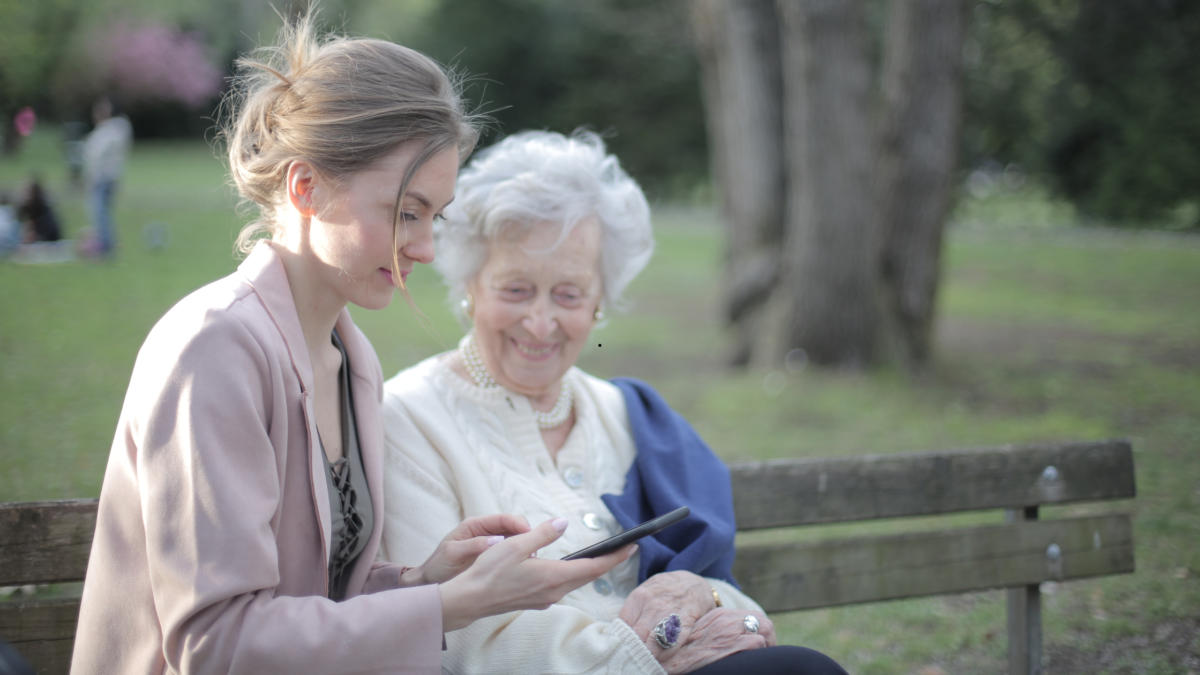
Caregiving alone is hard work. Adding work on top of that to support your family financially is a grapple that nobody is prepared for. Caring for aged parents at home while you’re working requires major lifestyle changes so you can sustain a sense of normalcy in your situation.
There are around 38 million unpaid caregivers in the US. Though many, being trapped in a cycle of serving others with little to no time for oneself can be very isolating. It is mentally and physically taxing which can cost you your health in the long run.
The Emotional Toll of Caregiving
Having your parents rely on you in their old age is a huge responsibility. It puts a toll on the well being of almost anyone in the same situation since there’s a disruption in almost any aspect of your life. These include:
- Loss of identity by being consumed by the responsibility
- Lack of time for self-care and recreation
- Strained personal relationships
- Disrupted lifestyles
With the physical and mental toll when caring for aged parents at home, caregivers are more vulnerable to depression and anxiety. Without proper support, many caregivers are battling guilt, exhaustion and burnout from making tough decisions for themselves and their aging parents.

Taking care of your aging parents is beyond commendable for the strength, resilience, and love it takes to push through everyday. Every family has their unique share of struggles and what works for others might not work for you for several possible reasons.
The best way to handle your specific situation is equipping yourself with the right tools and strategies specifically adjusted to your lifestyle.
Beginnings are always the hardest when embracing a new chapter but with a few adjustments, you’ll eventually develop systems that will make caregiving more sustainable.
5 Work-Life Balance Tips When Caring for Aged Parents at Home
Caring for aging parents comes in a spectrum depending on the parent’s capability to care for themselves. Whether you are in the first stretch of care or handling your parent’s complex conditions, here are some tips that may make caregiving more manageable.
#1 Build a routine that works for you and your patients

Any miscommunication or mishaps in care can be critical when caregiving. Therefore overwhelm is very common to most caregivers. That’s why routines play a pivotal role in having a sense of control at home while you’re at work. These routines include schedules but not limited to:
- Daily schedule and activities
- Physical calendar
- Food prep and meal times
- Medicine management
- Hygiene routine
- Medical checkups and appointments
- Companion scheduling
- Regular check-ins
Routines and systems help relieve your brain from the daily anxieties of caregiving. It’s like building a second brain to help you and your other family members coordinate in caregiving efficiently.
A solid routine helps you know where and when to check things before and after work. It also helps set the expectation on both parties which prevents unnecessary stress every day.
#2 Adapt to your new dynamics and set boundaries

Oftentimes, conflicts and resentment often arise between adult children and aging parents because of the shift in their dynamics.
Parents are always expected to provide for their children whereas adult children often count on their parents for support. Once that dynamic changes, it strains the experience on both parties. Therefore, it’s crucial to reassess and unlearn the old dynamics to adapt to the new ones.
The dynamic shift between aging parents and adult children are never easy so here as some tips to consider as you work on accepting this chapter:
- Acknowledge that you are now the main support of your aging parents. Being aware of this will help you get on with the process of acceptance.
- Respect the independence of your parents. While your aging parents might be relying on you on their basic necessities, you need to respect the things that they can still do while they can. Some adult children still allow their elderly parents to be in charge of their finances.
- Help your aging parents and other family members understand the things you can and cannot do, especially that you’re also working. It’s hard to have difficult conversations about boundaries but it’s necessary to prevent burnout for you and other caregivers within your family. It’s essential to talk about crucial details like:
- Work hours
- Call hours
- Caregiving schedule
- Assigned caregiver everyday
- Set time for bonding and recreation with your loved ones if possible. A fun time with your loved ones help forge
Most of the time caregivers of aging parents wrestle feelings of guilt when setting boundaries. However, it’s very crucial to maintain a sustainable caregiver dynamic and avoid an extensive toll on you as they continue to age over time.
#3 Check employment benefits you can leverage

As a caregiver, your time will be significantly different among other people who are not doing the same duty. With that, the lack of communication about your new role in the family will cause strained relationships at work or with your friends.
To ensure that people don’t misunderstand your actions, it’s best to let your employer know your situation. They may offer more support like giving you a more flexible schedule to accommodate your needs.
When everybody around you is aware of your situation, they’ll be more capable of providing support and it’ll hopefully make things a little bit easier for you and your aging parents.
#4 Consider personal support to take routine breather

One of the hardest parts of caregiving aging parents is the monotony of constant support which makes caregivers feel trapped in their role. Such feelings often lead to depression and anxiety among caregivers.
Personal support is a type of healthcare service where a skilled healthcare worker can be your support in caring for your aged parents at home. They can take turns with you on an hourly or full-time basis. They are professionally trained to handle different geriatric cases that can give you peace of mind when you’re away from home.
It’s best to consider personal support if you are any of the following:
- Have one or no family member who can help with the caregiving.
- Endure so much stress and exhaustion at work
- Started to develop illnesses and mental conditions due to the heavy responsibility of caregiving
- When the care required for your aging parent is starting to get more complex.
#5 Prioritize self-care and surround yourself with support

As a caregiver of aging parents, you are the most important person in the family. If you get sick, no one will be able to support them and no one can also help you either. Therefore, consider self-care as a way of loving your aging parents, kids, and spouse.
If finances are not a problem, consider taking vacations and retreats from time to time to give yourself some time to recuperate, destress, and fill your own cup.
On the other hand, it’s common for people with aging parents to have financial difficulties due to increasing medical costs. If that’s your case, here are some low-cost self-care tips that you can try:
- Journaling is the best way to express all your frustration and other emotions. It helps you keep track of what you’ve been feeling and somehow understand yourself objectively.
- Enforcing self-care trifecta which include proper hygiene, eating and sleep. These are crucial to maintain your well-being. In case you start neglecting one of the three, maybe it’s time to pick it up slowly until you do it autopilot.
- Spending at least an hour doing something you love without any interruptions.
- Consider getting support from a specialized therapist on navigating your caregiving journey. There are dementia-caregiver therapists out there who are trained on helping caregivers of family members with their journey.
Discover How Personal Support Can Help You with Essential Wellness
Finding help, even in small ways, can lighten the load because caring for aged parents at home takes a village. Even if caregiving is hard, it’s still possible to have a life out of the monotony of serving your loved ones.
Essential Wellness is a home health care agency in South Florida that aims to provide convenient healthcare support for caregiver families with aging parents, patients in recovery from injury, children with disabilities and patients with mental health conditions. Other services provided include:
- Personal Support (Daily living support)
- Life Skills (Companionship)
- Respite Care / Skilled Respite
- Analysis and Behavior Assistant services (ABA)
- Nursing
- Private Duty Nurse
- Skilled Nurse
- Residential Nurse
- Therapy
- Speech Therapy
- Occupational Therapy
- Physical Therapy
- Homemaker & Companion
- Specialized Mental Health
Check out your options with the free consultation to get a more tailor-fit solution for your family. Work-life balance might be different from what it means to other people but life can still be sustainable. Your resilience and strength is admirable and you don’t need to run empty to prove how much you love your parents.

